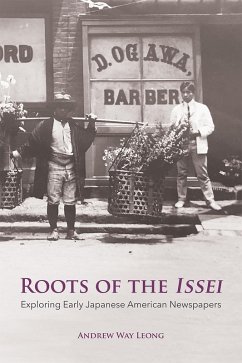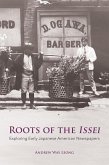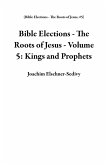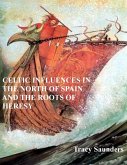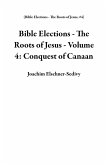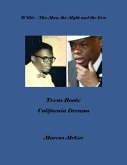Roots of the Issei presents a complex and nuanced picture of the Japanese American community in the early twentieth century: a people challenged by racial prejudice and anti-Japanese immigration laws trying to gain a foothold in a new land while remaining connected to Japan. Against this backdrop, Andrew Way Leong examines the emergence of generational terms that have long been used to organize Japanese American narratives: issei (first generation), nisei (second generation), and sansei (third generation). In the process, he suggests these widely-used generational concepts are in fact a recent construct. Leong's illuminating research is made possible by the Hoji Shinbun Digital Collection, the world's largest open-access, full-image, and searchable online digital collection of Japanese American newspapers. With this technology, Leong is able to analyze materials that until recently were regarded as beyond computer-aided analysis, due to difficulties presented by the complexity of Japanese language. With access to these primary sources, Leong is able to upend several scholarly assumptions and beliefs and present a never-before-seen picture of Japanese American struggles-both with an adversarial host country and among themselves-backed by the authority of primary sources.
Dieser Download kann aus rechtlichen Gründen nur mit Rechnungsadresse in A, B, BG, CY, CZ, D, DK, EW, E, FIN, F, GR, HR, H, IRL, I, LT, L, LR, M, NL, PL, P, R, S, SLO, SK ausgeliefert werden.

